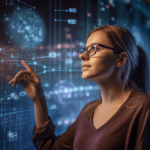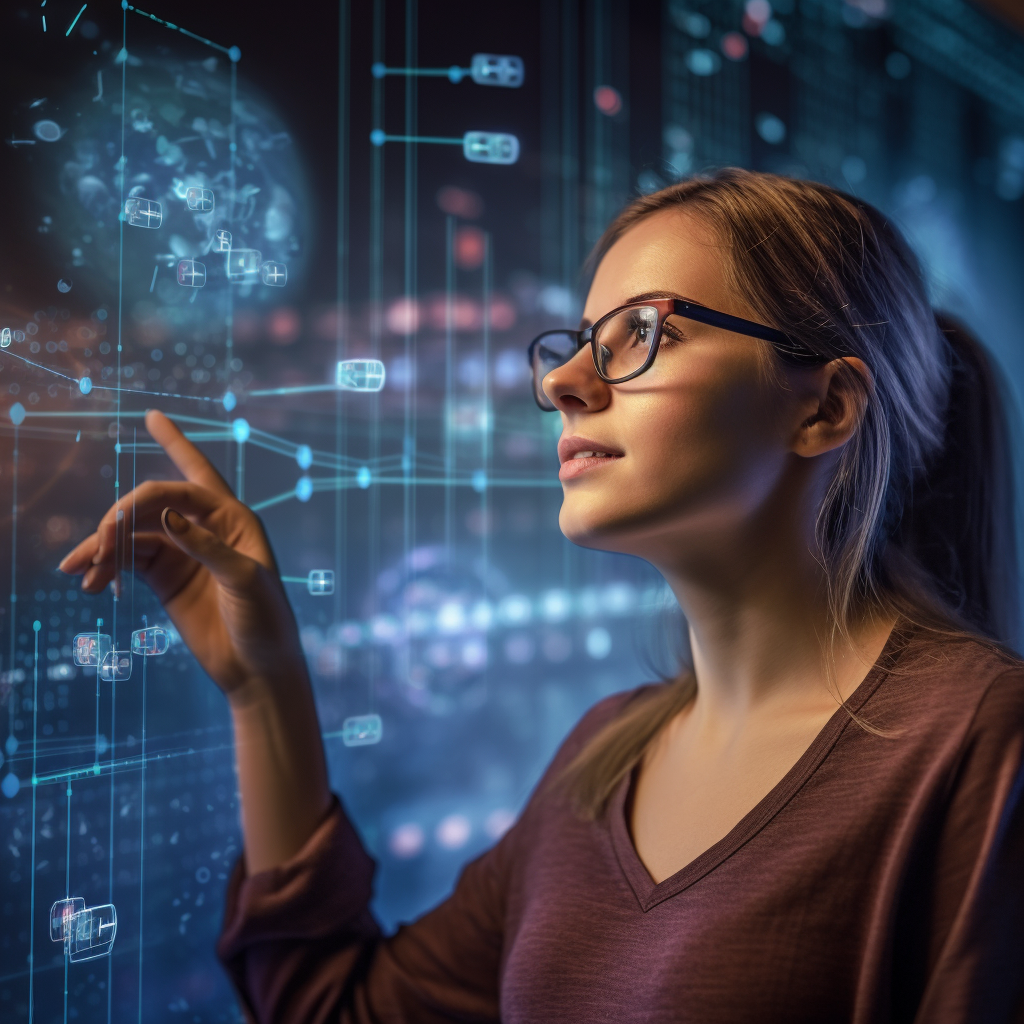28 August 2023. Article by Olivia Davis. Estimated time to skim and scan: 6 minutes.

The Role of Ai in Revolutionizing Collaboration
With the advent of AI, collaboration in the creative industry has been revolutionized. 🤖 It is said that AI provides the perfect balance between man and machine as it helps in automating tasks and does not compromise on the creative process. 🤝 One of the most significant impacts of AI on collaboration is that it allows creative teams to work together in real-time on a project. 💻 This has removed the restrictions of working in different locations and time zones, making it easier to work together without boundaries.
AI has also ushered in new ways of collaboration within the industry, such as remote collaboration, which allows teams to work from different regions or countries. 🌍 AI has made communication between team members more efficient, providing the ability to chat, video conference, or even work on the same document simultaneously, regardless of location. 📈 Furthermore, AI has improved team productivity by automating repetitive, time-consuming tasks that do not require a human touch; this has freed up time for the creative team to focus on more vital aspects of the project.
If you want to know more about the impact of AI in the engineering industry, check out this comprehensive guide on CPE by Ultimaker.
Benefits of AI in the Creative Industry
The benefits of AI in the creative industry are numerous. 🚀 The most significant benefit is how it has streamlined the creative process. With AI, creative teams can now create and iterate quickly, produce better quality work, and meet deadlines with ease. 📅 Additionally, AI has democratized the creative process by eliminating the boundaries that had previously existed in the industry. 👤
Moreover, AI has improved the quality of work produced by the creative industry. With AI, creatives can generate more accurate insights and frameworks that help them understand both the brand’s and customer’s needs better. 🎨 This understanding allows designers to create more personalized and relevant content for their clients, thereby improving the customer experience. Lastly, AI has also made it easier for creative professionals to produce and distribute their work across various channels, as well as analyze the impact of their work on the market.
If you are looking to stay ahead in the creative industry, embracing AI is the key to your success. 🏆

From Idea Generation to Product Development: the Ai Influence
The influence of AI has been felt throughout the creative industry. 🌟 AI has allowed creatives to streamline the entire product development process, from idea generation to market launch. 💡 One significant advantage of AI in product development is the ability to generate accurate insights about user needs, preferences, and patterns. 📈 This information enables designers to develop products that better meet their customers’ needs, ultimately leading to increased customer satisfaction and profitability. In addition, AI also helps in developing more personalized marketing campaigns, which can significantly improve the chances of success.
Another critical aspect of AI in product development is how it has made the prototyping process more efficient. 🚀 AI allows developers to create realistic prototypes faster, test them more rigorously, and make more accurate iterations. This has significantly cut down on the time it takes for a product to reach the market. 💻 AI has also improved the product development process by creating intelligent systems that can learn from users and adapt to their preferences, which leads to better product outcomes in the long run.
If you want to learn more about how AI can streamline the engineering process, check out this fantastic resource on Creating Construction Lines with Autodesk Inventor. It is a comprehensive guide to mastering precision in the product development process and can help you stay ahead of your competitors.
The Impact of Ai on Creative Collaboration
AI has had a tremendous impact on creative collaboration, making it easier for designers, writers, and other creatives to work together seamlessly. 🤝 One of the most significant ways that AI has impacted collaboration in the creative industry is through the creation of virtual assistants or chatbots. 🤖 These assistants can help automate repetitive tasks, freeing up more time and resources to focus on the creative aspects of the project. They can also help streamline communication between team members and provide quick access to essential information.
Another significant impact of AI on creative collaboration is the ability to enhance creativity through the power of machine learning. 🤯 By analyzing large amounts of data and running simulations, AI can identify patterns and generate insights that creatives can use to enhance their work. AI can also help creatives to visualize their ideas in new and exciting ways, sparking new ideas and leading to better outcomes. Additionally, AI has also enabled remote work, making it easier for creatives to work together regardless of location or time zone.
The role of AI in the creative industry is only set to grow in the coming years. As designers and teams become more comfortable working alongside AI tools and technologies, it is likely that AI will become an even more integral part of the creative process. 🌟

The Future of Ai in Design Thinking
Design thinking is an approach that has been adopted by creatives and innovators to create solutions to complex problems. 🔎 The introduction of AI to design thinking has provided a new perspective to problem-solving. 🤔 AI has the ability to analyze vast amounts of data, providing insights that humans would not have been able to perceive. 📊
AI in design thinking also brings the opportunity to automate repetitive work that can be time-consuming for creatives. This will free up more time for designers to focus on more important and relevant parts of their work. 🕰️ It is also believed that the integration of AI in design thinking will make the design process more efficient, leading to better quality work being produced more quickly. As a leading design agency, we recommend you embrace AI as the future of design thinking. 💡
For those interested in mastering their control with custom PLC styles in AutoCAD Electrical, check out this comprehensive guide.
The Ethics of Ai in Creative Work
While AI has revolutionized collaboration and the creative process, there are certain ethical implications that must be considered. 🤔 For instance, the automation of certain tasks like colorization and tagging, raises issues about the role of creatives in the industry. 💼 It sparks questions such as whether or not AI is taking away the creative ability of humans, or if AI will eventually replace creatives altogether.
Additionally, some industry professionals are concerned that AI models can be biased, and that bias within these models can result in a lack of diversity in the industry. ⚖️ There have been calls for the industry to regulate AI models to ensure that the content produced is diverse and inclusive.🌈
It is essential to ensure that AI is being used to complement and enhance the creative process and not replace a human’s role in the industry. 🔍 As the use of AI becomes more prevalent in the industry, it is important to continuously review the ethical implications and ensure that the technology is used in a responsible manner. 🤝
For guidance and information on the development of AI and its ethical implications, check out this comprehensive guide by Extensible CAD Services.









